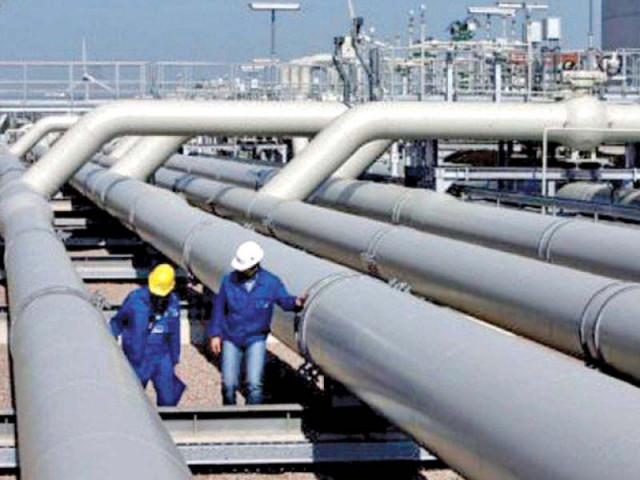LNG consumption: Fertiliser plants exempted from gas infrastructure cess
ECC also agrees to cut sales tax on liquefied natural gas import.

In case PSO is unable to bring LNG cargo, fertiliser plants may be allowed to import the consignment on payment of incremental charges. PHOTO: FILE
The government has exempted fertiliser manufacturers from payment of gas infrastructure development cess on liquefied natural gas (LNG) consumption and has cut general sales tax on LNG import in an effort to provide the fuel to Punjab plants that have been running partially over the years.
However, the fertiliser plants would have to pay incremental charges to oil marketing company Pakistan State Oil (PSO) and a set margin to gas transmission firm Sui Southern Gas Company (SSGC) if they import LNG from their own resources.
The Economic Coordination Committee (ECC), in its meeting held on March 14, decided that no cess would be imposed on LNG imports, which would be utilised by fertiliser plants.
“Since these plants are bulk users on a high-pressure transmission network with minimum or no transmission losses, the transmission losses, if any, may be charged at actual value,” the ECC said.
At present, fertiliser plants are mostly sitting idle and are not contributing any revenue in the form of general sales tax to the government exchequer. They may be asked to pay 5% general sales tax on the fertiliser produced by consuming imported LNG as was allowed to compressed natural gas (CNG) stations, which will increase affordability of fertiliser produced from expensive LNG.
The ECC decided that the fertiliser industry could be allowed to import LNG by utilising their resources.
Under the present arrangement, PSO is allowed to import one cargo through the Floating Storage and Regasification Unit (FSRU) on free-on-board (fob) basis or LNG carrier on delivered ex-ship (DES) basis. In case PSO is unable to bring the cargo, fertiliser plants may be allowed to import the consignment on payment of incremental charges over and above the amount required to be paid by PSO.
The existing terminal operator will provide storage and regasification facility at the applicable regasification and storage tariff along with the SSGC margin. Gas companies will transport LNG from the terminal to the fertiliser plants under swap arrangements.
Gas distribution companies will ensure that the LNG provided to the fertiliser plants will be equal in terms of British thermal units to the gas imported by these plants.
In the meeting, the ECC was told that the fertiliser industry was of the view that if gas supply continued to be curtailed, the government would have to spend $2.84 billion, based on prevailing prices in the international market, over the next six years on urea import. With this, the country would also have to bear a subsidy of Rs69 billion from 2015 to 2020.
A continuous shortfall in the Sui Northern Gas Pipelines Limited (SNGPL) system led to a big reduction in gas supply to various consuming sectors including the fertiliser manufacturers. Supplies to the fertiliser plants on average ranged between 40 and 45 days per year since 2011.
This gas shortfall forced the industry to produce below capacity and necessitated imports of costly urea to meet the demand of farmers.
Estimates of the fertiliser industry suggest that the government had spent $1.68 billion on urea purchase from overseas markets over the last four years, which was in addition to the subsidy of Rs76 billion provided from 2011 to 2013.
Published in The Express Tribune, March 21st, 2015.
Like Business on Facebook, follow @TribuneBiz on Twitter to stay informed and join in the conversation.



















COMMENTS
Comments are moderated and generally will be posted if they are on-topic and not abusive.
For more information, please see our Comments FAQ